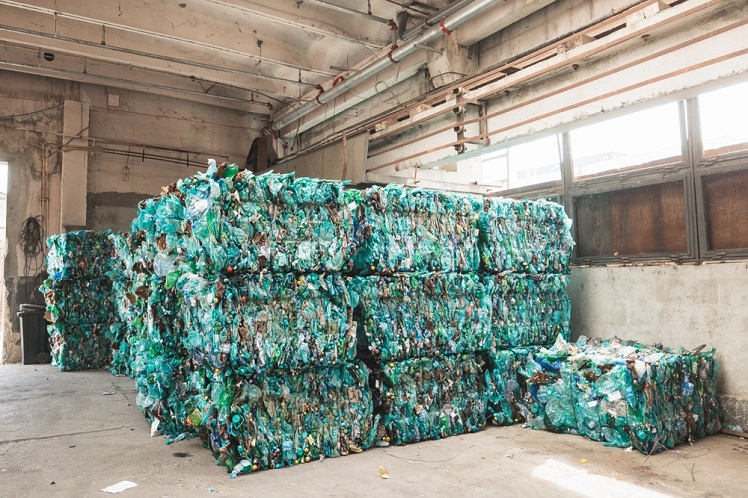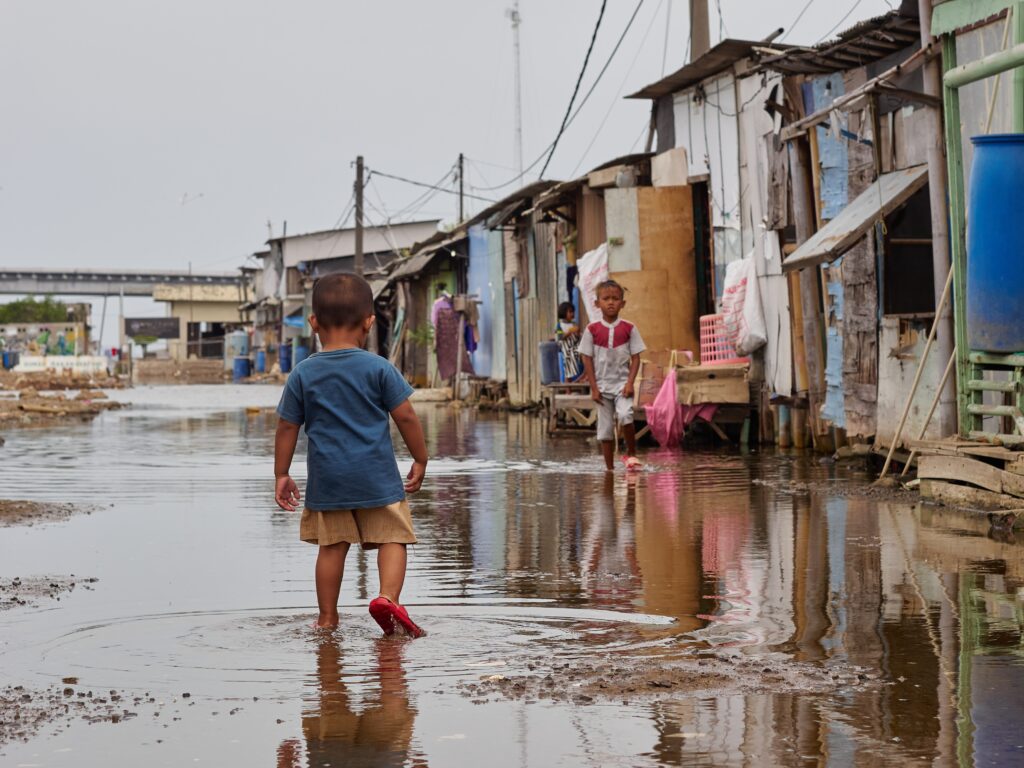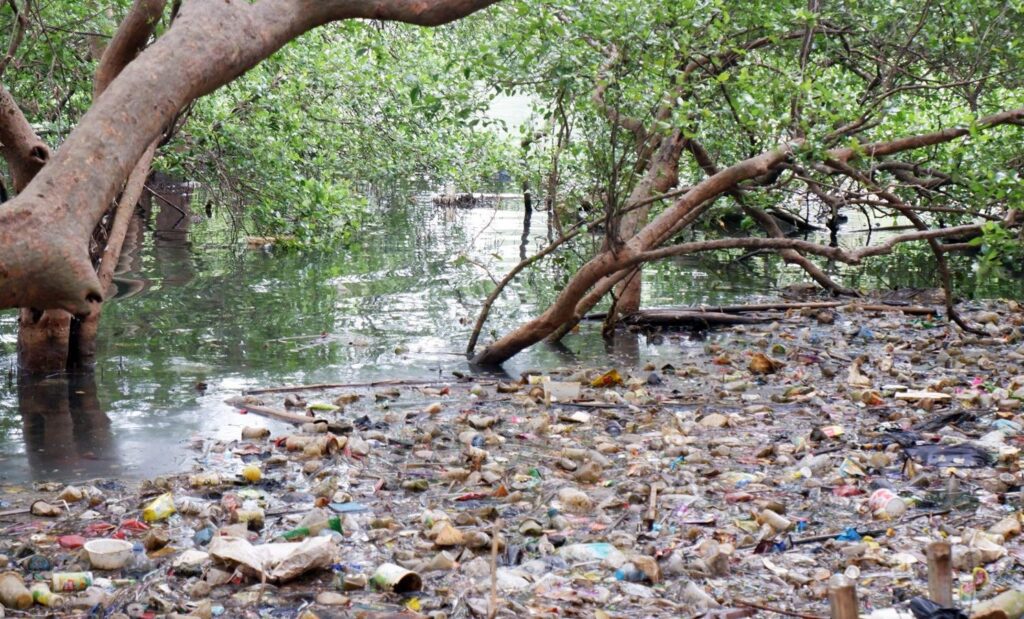The environmental impact of the Olympics is becoming increasingly apparent. It brings together athletes from over 200 countries and is one of the world’s most watched and attended sporting events. As a result, it is under the microscope as the issue of sustainability trends across the world.
International Olympic Committee Acknowledges the Environmental Impact of the Olympic Games
Host countries and the International Olympic Committee (IOC) have acknowledged Olympics environmental impact and made strides to improve. The upcoming 2024 Paris Olympics will be an opportunity to see how much progress has been made.
What Are the Negative Environmental Impacts of the Olympics?
Here are some of the top negative impacts of the Olympics:
Greenhouse Gas Emissions and Carbon Emissions
Fossil fuels play an important role in almost all events, and the Olympic Games are no different. Due to its scale, the Olympics have a significant greenhouse gas and carbon footprint.
For instance, the Tokyo 2020 Olympics emitted approximately 2.7 million tonnes of CO2, and the Rio 2016 Olympics released 4.5 million tonnes of direct and indirect emissions. These values are comparable to the annual emissions of a small country like Montenegro.
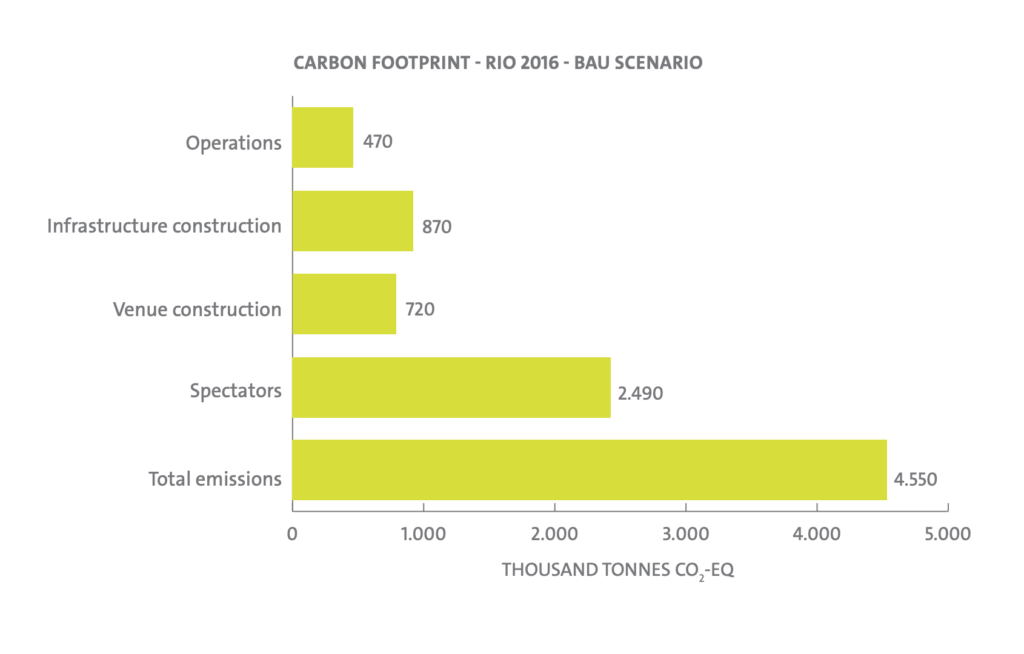
Typically, these greenhouse gas emissions primarily stem from the construction of venues, the travel of athletes and spectators and the energy consumption during the events. However, the Tokyo Summer Olympics had significantly fewer attendees than typical due to COVID-19, which is part of why it has lower emissions than Rio.
Resource Consumption
The Olympics demand vast amounts of materials, water and energy. For example, the Rio 2016 Olympics required significant infrastructure development, including the construction of 17 new venues. The Olympic Village alone required 430,000 cubic metres of concrete and 43 tonnes of steel. Cement and concrete production accounts for up to 8% of global emissions and is a hard-to-decarbonise sector.
Waste Generation
Significant waste is produced before, during and after the Olympic Games. The Rio 2016 Olympics generated 17,000 tonnes of waste. This is equivalent to the annual waste generation of over 20,000 homes in the U.S. – one of the world’s highest per capita waste-generating countries.
This is a similar trend seen across Olympic events. For example, the Tokyo 2020 Olympics still saw about 130,000 meals discarded in one month, highlighting the challenges in waste management at such events.
Biodiversity Loss
Another consideration is that the construction of Olympic venues often disrupts local ecosystems. The preparation for the 2018 Pyeongchang Olympics led to the deforestation of thousands of trees and the displacement of protected animals to develop new ski runs. The upcoming 2024 Paris Olympics are also in hot water due to the development of the surfing venue in Tahiti, which damaged its world-famous coral reefs.
What Are the Positive Environmental Impacts of the Olympics?
Despite the negative impacts, the Olympics also offer opportunities for positive environmental contributions.
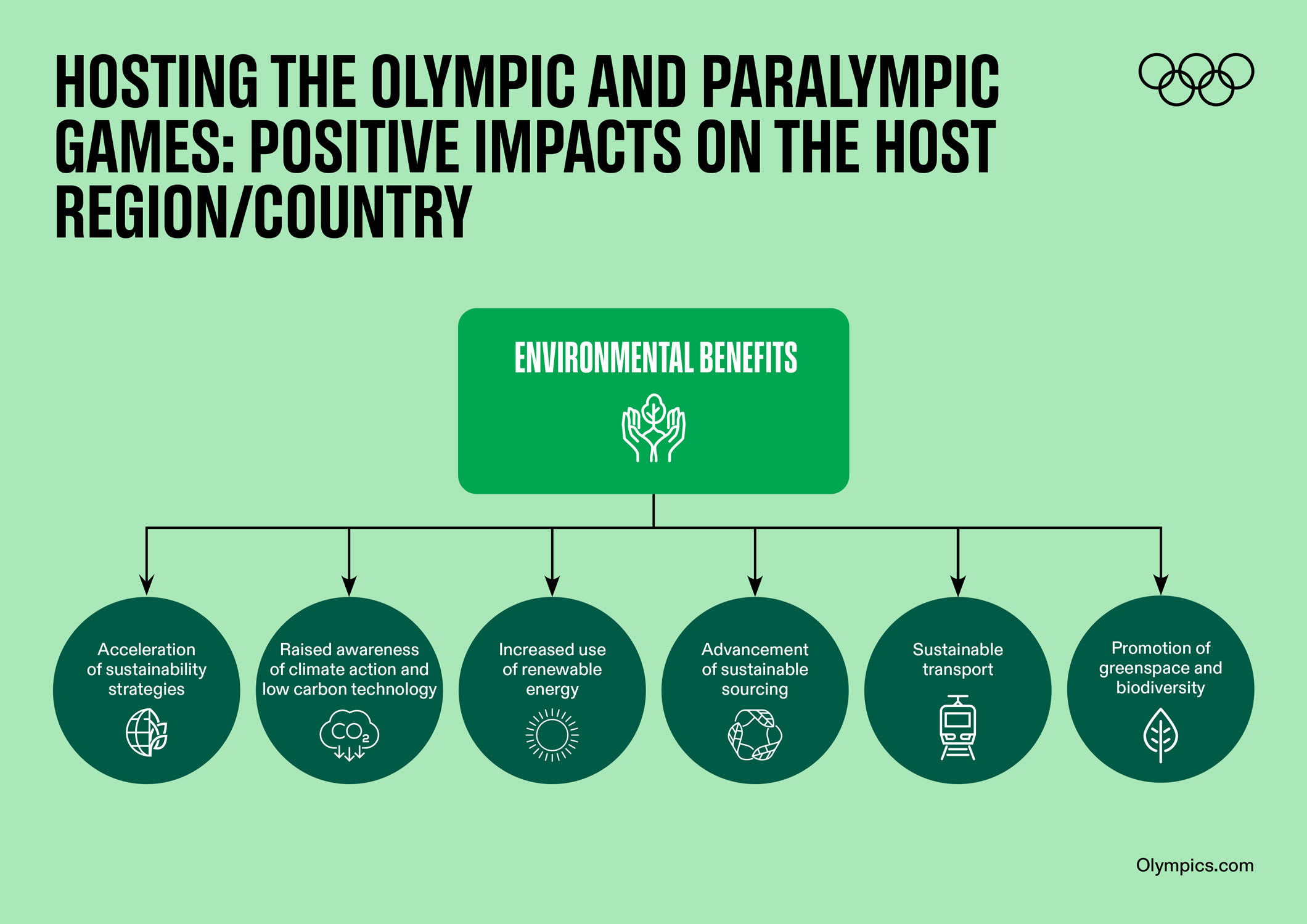
Green Energy
The Olympics allow host countries to develop new green infrastructure and add sustainable technologies that are often a lower priority in a typical development scenario. For example, the 2020 Tokyo Olympics saw the development of hydrogen fuelling stations and fuel cell buses, which are part of the country’s long-term net-zero strategy.
Awareness and Education
The global platform of the Olympics raises awareness about environmental issues. Initiatives like the Olympic Sustainability Strategy aim to educate the public and promote environmental responsibility. Furthermore, it incentivises host countries to develop sustainable infrastructure and solutions to align with the International Olympic Committee’s long-term sustainability plans.
Improving the Sustainability of the Olympics
The International Olympic Committee plays a pivotal role in promoting sustainability through initiatives like the Olympic Agenda 2020. This framework sets guidelines and standards for Olympic host cities, focusing on sustainable development and providing resources to implement these practices effectively. For example, the IOC is targeting a 50% reduction in carbon emissions by 2030. Meeting this goal will require a buy-in from both host cities and attending countries.
Additionally, one of the core criteria the IOC uses when selecting Olympic host cities is that they “must demonstrate that they have put sustainability and legacy at the heart of their Games proposal.” This requires host cities to consider how to implement sustainability before they receive the bid and develop a long-term sustainability performance plan. Whether or not the city is chosen for the Olympics, it will have to put significant thought into making its city more sustainable and environment-friendly – an important step in sustainable development.
Sustainability at the Paris 2024 Olympics
It looks like the IOC’s approach is paying off, as the Paris 2024 Olympics are being dubbed the “most sustainable Olympics yet.”
The Games aim to halve carbon emissions compared to previous events with 95% of venues already either existing or temporary. The events will also incorporate renewable energy sources. The organisers have implemented a comprehensive circular economy strategy, involving reducing, renting and reusing resources. Initiatives include extensive use of solar power, increasing plant-based food options and innovative waste management practices to cut single-use plastics and food waste.
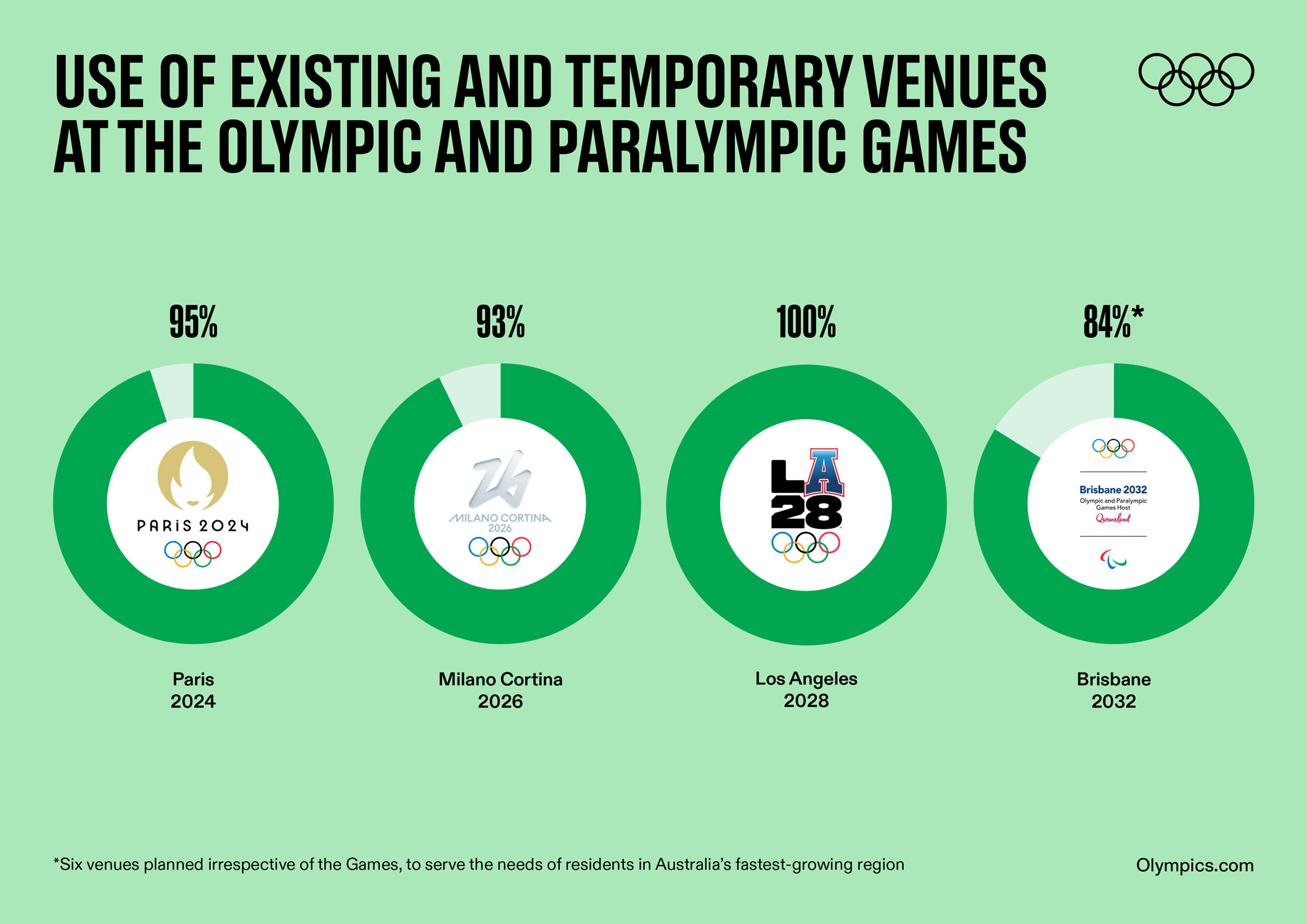
Global Impact of Sustainable Olympics
Addressing the Olympics’ environmental impacts is essential for the future Olympic Games and the planet. The Olympics have the platform and development pull to incentivize some of the largest cities in the world to improve their sustainability. Although a carbon neutral Olympics is still a dream, it will help in the fight against climate change. The Games can set a precedent for global events, promoting long-term environmental stewardship and inspiring action worldwide.
Eric Koons
Writer, United States
Eric is a passionate environmental advocate that believes renewable energy is a key piece in meeting the world’s growing energy demands. He received an environmental science degree from the University of California and has worked to promote environmentally and socially sustainable practices since. Eric has worked with leading environmental organisations, such as World Resources Institute and Hitachi ABB Power Grids.
Eric is a passionate environmental advocate that believes renewable energy is a key piece in meeting the world’s growing energy demands. He received an environmental science degree from the University of California and has worked to promote environmentally and socially sustainable practices since. Eric has worked with leading environmental organisations, such as World Resources Institute and Hitachi ABB Power Grids.



